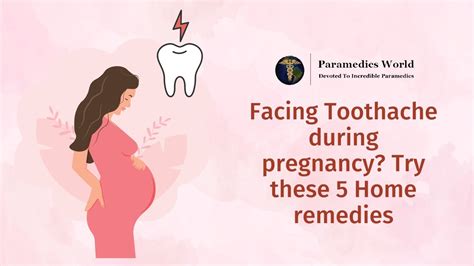Toothache When Pregnant

Pregnancy is a unique and complex time in a woman’s life, filled with numerous physical and emotional changes. One common issue that may arise during this period is a toothache. A toothache during pregnancy can be particularly challenging due to the limitations on certain treatments and the potential impact on both the mother’s and the fetus’s health. Understanding the causes, symptoms, and appropriate management strategies for toothaches during pregnancy is crucial for maintaining oral health and overall well-being.
Causes of Toothaches During Pregnancy
Toothaches can be caused by a variety of factors, including but not limited to dental cavities, gum disease, tooth sensitivity, and dental work issues. During pregnancy, hormonal changes can exacerbate these conditions. For instance, the increased levels of progesterone and estrogen can lead to changes in the gingiva, making them more susceptible to plaque and bacteria, which can result in gum inflammation and disease. Furthermore, morning sickness can lead to an acidic oral environment, potentially eroding tooth enamel and increasing tooth sensitivity.
Symptoms of Toothaches
Symptoms of a toothache can range from mild to severe and may include sharp pains or a dull ache in the teeth and gums, sensitivity to hot and cold temperatures, swelling around the teeth and gums, and difficulty chewing or biting. In some cases, a toothache can be a sign of a more serious condition, such as an abscess, which requires immediate dental attention to prevent further complications.
Managing Toothaches During Pregnancy
Managing a toothache during pregnancy requires careful consideration of the treatment options to ensure the health and safety of both the mother and the fetus. Here are some steps and considerations for managing toothaches during this critical period:
Seek Professional Dental Care: The first and most crucial step is to visit a dentist. It’s essential to inform your dentist about your pregnancy so that they can choose the safest treatment options. Regular dental check-ups during pregnancy can help prevent toothaches by identifying and treating any oral health issues early.
Safe Treatment Options: Dental treatments during pregnancy should be aimed at relieving pain and preventing infection. Fillings and dental work can usually be done during the second trimester when the risk to the fetus is lower. However, emergency procedures can be performed at any time if necessary. Your dentist will avoid using X-rays unless absolutely necessary and will choose medications that are safe for use during pregnancy.
Pain Relief: For mild toothaches, over-the-counter pain relievers like acetaminophen (Tylenol) are generally considered safe during pregnancy. However, it’s essential to consult your healthcare provider or dentist before taking any medication to ensure it’s safe for you and your baby. Aspirin and ibuprofen are usually avoided during pregnancy due to potential risks to the fetus.
Good Oral Hygiene Practices: Maintaining good oral hygiene is vital during pregnancy. Regular brushing with fluoride toothpaste, flossing once a day, and using an antibacterial mouthwash can help prevent toothaches by reducing plaque and bacteria. Rinsing your mouth with water after vomiting can also help neutralize the acid and protect your teeth.
Dietary Changes: Eating a balanced diet rich in fruits, vegetables, and whole grains can support oral health. Avoiding sugary and acidic foods and drinks can also help prevent tooth decay and erosion.
Prevention
Prevention is key when it comes to toothaches, especially during pregnancy. Regular dental check-ups, good oral hygiene practices, and a healthy diet can significantly reduce the risk of developing a toothache. Additionally, being aware of the signs of dental problems and seeking care early can prevent minor issues from becoming major ones.
Conclusion
A toothache during pregnancy, while uncomfortable and concerning, can be managed effectively with the right approach. By understanding the causes, recognizing the symptoms, and seeking appropriate dental care, pregnant women can protect their oral health and the well-being of their baby. It’s crucial to prioritize regular dental visits and maintain good oral hygiene practices to prevent toothaches and ensure a healthy pregnancy.
FAQ Section
Is it safe to go to the dentist when I’m pregnant?
+Yes, it is not only safe but also recommended to visit your dentist during pregnancy. Informing your dentist about your pregnancy allows them to provide care that is tailored to your needs, ensuring the health and safety of both you and your baby.
What pain relievers are safe for toothaches during pregnancy?
+Acetaminophen (Tylenol) is generally considered safe for pain relief during pregnancy. However, it’s crucial to consult your healthcare provider or dentist before taking any medication to ensure it’s safe for you and your baby.
Can I prevent toothaches during pregnancy?
+Yes, maintaining good oral hygiene through regular brushing, flossing, and rinsing with an antibacterial mouthwash, along with a balanced diet and regular dental check-ups, can significantly reduce the risk of developing toothaches during pregnancy.
Are dental X-rays safe during pregnancy?
+Dental X-rays are generally avoided during pregnancy unless absolutely necessary. If an X-ray is required, your dentist will take precautions to minimize exposure to the fetus.
How often should I visit my dentist during pregnancy?
+Regular dental check-ups are recommended during pregnancy. Typically, a visit during the first trimester and another during the second trimester can help in early detection and treatment of any oral health issues, ensuring a healthy pregnancy.

